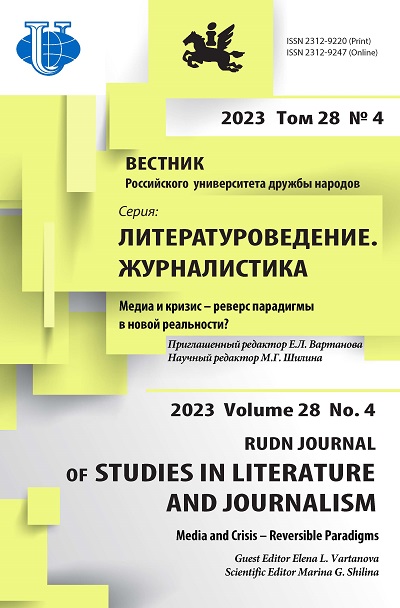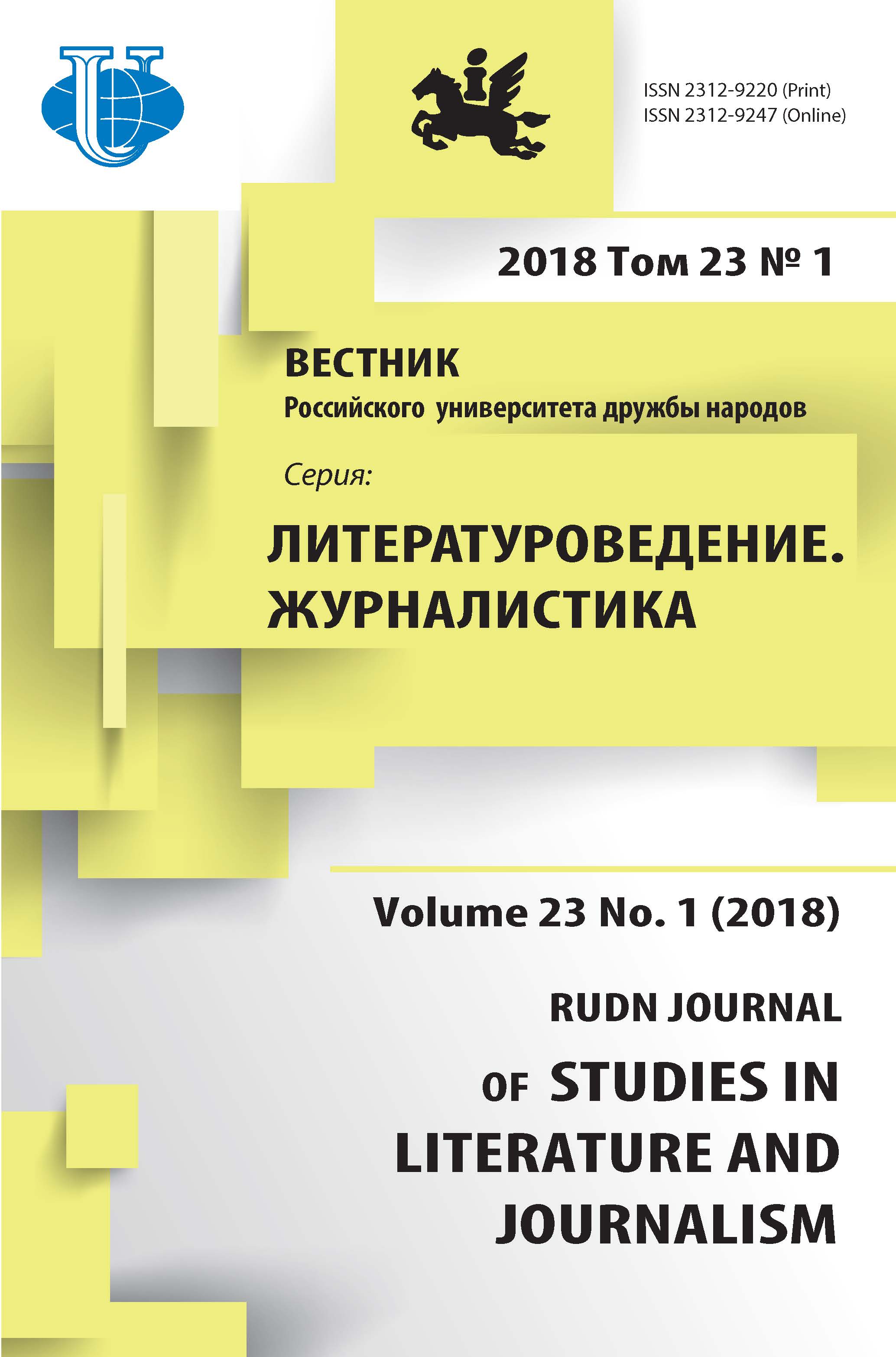Methodology for analyzing creolized text of political cartoon in the Arabic and French languages
- Authors: Ebzeeva Y.N.1, Dugalich N.M.1
-
Affiliations:
- Peoples’ Friendship University of Russia (RUDN University)
- Issue: Vol 23, No 1 (2018)
- Pages: 127-133
- Section: JOURNALISM
- URL: https://journals.rudn.ru/literary-criticism/article/view/18162
- DOI: https://doi.org/10.22363/2312-9220-2018-23-1-127-133
Cite item
Full Text
Abstract
The article suggests a methodology for analyzing political cartoons based on the results of a comparative study of the contemporary Arab and French political cartoons on political leaders. Political cartoon is a genre of political discourse that appeared in linguistics in the middle of the twentieth century and the study of which is currently an actual problem of modern linguistics. The genres of the political discourse can be described as a homogeneous and creolized texts; the political cartoon is a creolized text that unites the iconic and verbal levels and has paralinguistic characteristics. Creolized text is an integral part of modern communication and functions in a number of discourses. The following are also relevant issues for modern multidisciplinary research: classification of creolized texts on the interaction of its components, description of linguistic and visual means, consideration of semiotic codes and methods of their decoding. For the materials of the analysis there were selected 100 cartoons on political themes in Arabic and French, obtained by a continuous selection of print and electronic media and caricature sites.
About the authors
Yulia Nikolaevna Ebzeeva
Peoples’ Friendship University of Russia (RUDN University)
Author for correspondence.
Email: julia_eb@list.ru
PhD in Philology, associate professor of the department of foreign languages,RUDN University. Academic interests: stylistics, lexicology, sociolinguistics, theory of discourse
Miklukho-Maklaya str., 10/2 a Moscow, Russia, 119178Natalia Mikhailovna Dugalich
Peoples’ Friendship University of Russia (RUDN University)
Email: avsineeva.natalya@icloud.com
Master of Philology, Senior lecturer of the department of foreign languages,RUDN University. Academic interests: pragmatics, discourse analysis, methods of teaching foreign languages, comparative linguistics
Miklukho-Maklaya str., 10/2 a Moscow, Russia, 119178References
- Anisimova E.E. O celostnosti i svjaznosti kreolizovannogo teksta. K postanovke problemy [On the integrity and coherence of the creolized text. To the formulation of the problem], Filologicheskie nauki, no 5, 1996.
- Anisimova E.E. Lingvistika teksta i mezhkul’turnaja kommunikacija (na materiale kreolizovannyh tekstov). [Linguistics of the text and intercultural communication (on the basis of creolized texts)]. M.: Academia, 2003.
- Bernatskaya А.A. K probleme «kreolizacii» teksta: istorija i sovremennoe sostojanie [To the problem of the «Creolization» of the text: history and the present state] // Rechevoe obshhenie: Cpecializirovannyj vestnik / Krasnojarskij gosudarstvennyj universitet. Vyp. 3 (11). Krasnojarsk: Krasnojarskij universitet, 2000. S. 104–110.
- Voroshilova M.B. Kreolizovannyj tekst: aspekty izuchenija [Creolized text: aspects of study] // Politicheskaja lingvistika. Vypusk (1)21. Ekaterinburg, 2007. S. 75–80.
- Golovina L.V. Vlijanie ikonicheskih i verbal’nyh znakov pri smyslovom vosprijatii teksta [Influence of iconic and verbal signs with the semantic perception of the text]: avtoref.. kandidata filologicheskih nauk. M., 1986.
- Zuev D.D. Struktura sovremennogo shkol’nogo uchebnika i mesto v nej vnetekstovyh komponentov (na materiale analiza uchebnikov gumanitarnyh disciplin) [The structure of the modern school textbook and the place in it of extra-textual components (based on the analysis of textbooks of humanitarian disciplines)]: avtoref.. kand. filol. nauk. M., 1981.
- Sorokin Yu.A., Tarasov E.F. Kreolizovannye teksty i ih kommunikativnaja funkcija [Creolized texts and their communicative function] // Optimizacija rechevogo vozdejstvija [Optimization of speech influence]. M., 1990.
- Chigaev D.P. Sposoby kreolizacii sovremennogo reklamnogo teksta [Methods of Creolization of Modern Advertising Text]. M., 2010.
















